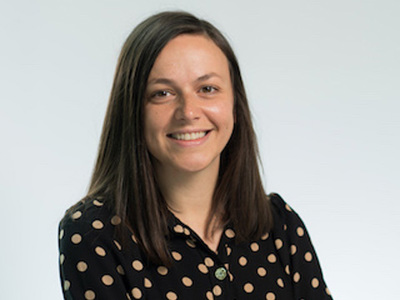
Why medical students and junior doctors should receive training on healthcare litigation
Rebecca Ridgeon reflects on delivering training to junior doctors on medical negligence.
Posted on 15 October 2024
As a medical negligence solicitor at Leigh Day, I have come to realise how important it is for healthcare professionals to be knowledgeable about medical negligence claims and healthcare litigation. Delivering training to two groups of junior paediatricians with my colleague Brendan Hope served to illustrate the point.
Several of the attendees said the 45-minute session was the only training they had ever had on the types of legal proceedings relevant to their jobs – despite five years of medical school and another eight or so years of practice.
What’s more, many of them commented in anonymous feedback afterwards that the training helped them to understand something they knew of, but little about. Reassuringly, this new knowledge made them feel less worried about the prospect of finding themselves involved in a claim in the future.
A participant said:
“[it was] really useful to hear from a different perspective – like someone else said, it would have been useful to have this talk at the start of my medical career!”
The law is a fundamental part of democratic society, yet the legal system and how it works is often barely taught in secondary schools or, it seems, in the context of professional training in careers such as medicine. A lack of knowledge can create a culture of fear and defensiveness, which is bad news for doctors and patients alike.
Last year, the Parliamentary and Health Service Ombudsman warned of a ‘cover-up culture’ in the NHS where ‘ingrained defensiveness’ is the norm, rather than openness and transparency – issues which he warned were contributing to avoidable deaths, and which have been highlighted again and again in recent years as numerous healthcare scandals, including a string of maternity safety scandals, have hit the headlines.
I understand why doctors might feel some defensiveness when the topic of medical negligence litigation comes up. Many medical professionals have very difficult jobs in very difficult circumstances - particularly given the widespread funding and resource issues affecting the NHS at present. But some of the defensiveness amongst medical professionals appears to stem from a lack of knowledge about what medical negligence claims involve, what their purpose is, and why people bring claims.
In preparation for our talk, we found that medical professionals and the general public often confuse and conflate medical negligence claims with regulatory or even criminal proceedings against doctors. These latter types of proceedings are focused on individual medical professionals and the potential outcomes include restrictions on practice, being prevented from practising medicine or, in the very rarest of cases, in criminal sanctions.
One of the participants noted that the introduction was helpful in understanding my “role and scope regarding the different areas of law/litigation” and that the talk helped them to “understand the process more and the standard of evidence that cases have to meet.”
On the other hand, medical negligence claims focus on the person who has been injured. The only guaranteed outcome of a successful medical negligence claim is compensation for a person whose life has been turned upside down as a result of negligent treatment.
This money helps with their recovery, pays for treatment or professional care which they need, or supports them in the future if they can never work again due to their injuries.
It is also important for medical professionals to understand that their actions are not judged by lawyers when it comes to civil litigation; it is a long-established legal principle that doctors are judged by other doctors.
Nearly every settlement or trial in a medical negligence claim is a culmination of years of careful investigation and lengthy discussions with the experts involved (independent, experienced doctors in the relevant field of medicine). The standards applied are based on what medical professionals say the appropriate standard is.
This all means that claims which are not supported by expert medical professionals do not go anywhere. Meanwhile, most claims which are settled are brought by genuinely injured people, who have suffered enormously due to negligent medical treatment and who have obtained evidence from experienced, independent medical professionals as to the reasonable standard of care that any patient should receive in those circumstances.
Ultimately, more training for medical professionals, especially at the start of their careers, would benefit everyone involved in healthcare litigation. Most importantly, an increased awareness of what constitutes medical negligence would help NHS patients. Doctors who are well-informed as to how the legal system operates and why claims are brought are more likely to be open when things do go wrong. That could contribute to better transparency in the NHS and to better patient care in the long-term. This was particularly well demonstrated by a participant who said, “it was very useful to hear from legal professionals about how the legal pathways work after complaints are raised as this is an area I have very little knowledge about.”
Whilst it probably wasn’t the most eagerly anticipated talk the junior doctors had attended, the feedback from the groups we talked to was that they really appreciated the insight we gave and, whilst some healthcare professionals may have a greater understanding of clinical negligence litigation, my clear take away from the day was that many others would benefit from this type of training.

Rebecca Ridgeon
Rebecca Ridgeon is a senior associate solicitor in the medical negligence department.



